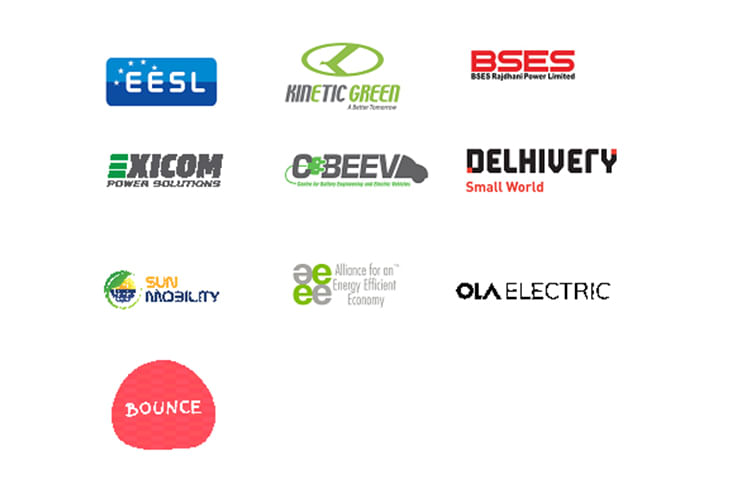Ola bats for battery swapping tech to boost adoption of EVs in India
Stakeholders discussed the potential of 'Battery Swapping' technology to enable early scale in India's ambitions for rolling out EVs.
Ola Mobility Institute (OMI), a policy research and social innovation unit of ride-hailing platform Ola, pitches for battery swapping technology to "be actively treated as a promising solution to accelerate the adoption of electric vehicles in India, especially for the two- and three-wheeler segments".
On May 29, 2019, OMI organised a roundtable christened Greenlight - Policy dialogues by OMI. The discussion on the potential of 'Battery Swapping' technology to enable early scale in India's ambitions for rolling out EVs, brought together market leaders to discuss and deliberate its market potential. The company says they came to a consensus and collectively endorsed India’s first shared resolution on Battery Swapping. EESL, Kinetic Green, BSES Rajdhani Power, Exicom, C-BEEV (Centre for Battery Engineering and Electric Vehicles), Delhivery, Sun Mobility, Alliance for an Energy Efficient Economy and Bounce are among the backers of the resolution.
According to the company, the reluctance in adoption of EVs are because of various factors including lack of charging infrastructure and high cost for electric cars compared to their ICE-counterparts. On the other hand, OMI says that any attempt on vehicle electrification in India needs to incorporate the two- and three-wheeler segment at least in proportion to market shares. In the segment (small vehicle), battery swapping technology has 'significant potential' as it offers favourable economics for consumers, in addition to several comparative advantages over dedicated charging infrastructure and fossil-fuel practices in the ease of use.

For users the tech offers mimics the experience of existing fuel pumps; eliminates waiting period; increases run-time and revenue opportunities for shared e-mobility drivers; reduces upfront cost; improves battery life and importance; will enable innovation to enhance life of battery and will help lower charging/swapping fee on account of increased adoption.
In terms of benefits to the power sector, the study says that this will help open up new avenue for revenue; formalise a new sector; will help balance the power demand load; batteries can also help in offering energy-storage solution; second lease of life to batteries and will help optimise utilisation of assets.
Ola Mobility Institute finds that in addition to enabling adoption it will also help encourage localisation and innovation in the country. This will further help create new employment opportunity, offers an impetus to the MSME sector and will help better asset utilisation.
Battery-as-a-service
In addition, Ola Mobility Institute proposes the definition of EVs be expanded to include vehicles without batteries pre-installed, and to encourage automotive use of batteries not sold with vehicles. Encourage speed of innovation by allowing early businesses to determine proper product-market-fit for swappable battery based vehicle ecosystems.
Encourage interoperability and scale of operations the guideline specifications should be derived from successful models, which will enable scaled procurement and deployment. Battery-as-a-service be recognised as a real catalyst for accelerating the adoption of electric mobility in India. Incentives should be extended to encourage high utilisation of Battery as a Service model to ensure deployment density of swapping stations, and the incentives should be extended to battery swapping business models - to vehicles without batteries and/or to advanced batteries for automotive use.
In case of taxation, GST subvention be offered on swapping services, thereby paying-for-success and creating a revenue-neutral mechanism to incentivise outcomes. And lastly, to make battery-as-a-service providers qualify for priority sector lending by financial institutions that will help set the mood for new players to enter the segment.
Also read: Piaggio to roll out electric Ape with Sun Mobility battery swapping tech this year
Sun Mobility reveals inter-operable battery swapping station for 2- and 3-wheelers
RELATED ARTICLES
Cosmo First diversifies into paint protection film and ceramic coatings
The Aurangabad, Maharashtra-based packaging materials supplier is leveraging its competencies in plastic films and speci...
JSW MG Motor India confident of selling 1,000 M9 electric MPVs in first year
The 5.2-metre-long, seven-seater luxury electric MPV, which will be locally assembled at the Halol plant in Gujarat, wil...
Modern Automotives targets 25% CAGR in forged components by FY2031, diversifies into e-3Ws
The Tier-1 component supplier of forged components such as connecting rods, crankshafts, tie-rods, and fork bridges to l...






 By Autocar Professional Bureau
By Autocar Professional Bureau
 18 Jun 2019
18 Jun 2019
 16960 Views
16960 Views












